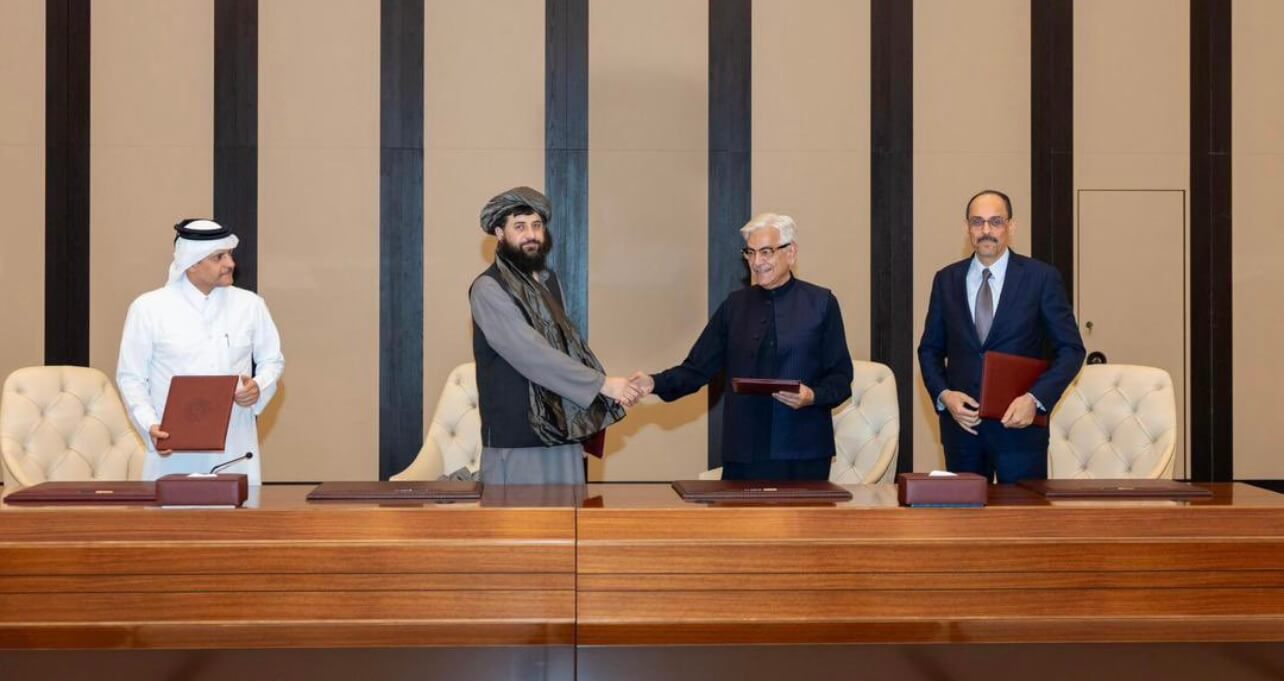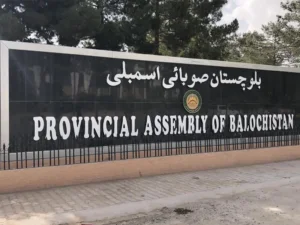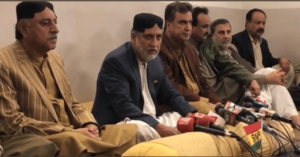Monitoring Desk:
Doha / Islamabad — In a major diplomatic breakthrough, Pakistan and Afghanistan have agreed to an immediate ceasefire following high-level talks in Doha, mediated by Qatar’s intelligence leadership with support from Turkiye. Both sides pledged to respect each other’s sovereignty and resume dialogue on October 25 in Istanbul to discuss long-term security and counterterrorism cooperation.
The announcement came after a day-long negotiation between a Pakistani delegation led by Defence Minister Khawaja Asif and Afghan Taliban officials, amid escalating border clashes. Qatar’s intelligence chief, Abdullah bin Mohammed Al Khulaifi, hosted and facilitated the closed-door discussions.
“A ceasefire agreement has been finalised. Cross-border attacks from Afghan soil will stop immediately. Both nations will respect each other’s territorial integrity,” Defence Minister Asif announced on X (formerly Twitter).
Foreign Minister Ishaq Dar welcomed the move, calling it “a significant step toward regional peace.” In a statement, he said:
“Pakistan appreciates the constructive role of brotherly Qatar and Turkiye. This is the right direction toward restoring stability in the region.”
Dar also expressed hope for the creation of a “concrete and verifiable monitoring mechanism” to ensure that militant activities from Afghan territory are effectively prevented.
Taliban Confirm Bilateral Agreement
In a statement issued in Kabul, Taliban spokesperson Zabiullah Mujahid confirmed that the Doha meeting concluded with the signing of a bilateral peace understanding.
“Both countries reaffirmed their commitment to peace, mutual respect, and non-aggression,” Mujahid said.
He added that neither side will support any militant group or engage in actions that threaten the other’s security.
According to the Taliban’s statement, both sides will establish a joint review mechanism, assisted by neutral countries, to ensure full implementation of the agreement.
Qatar’s Role in Regional Stability
A statement from Qatar’s Ministry of Foreign Affairs later confirmed that the 13-hour-long negotiations focused on border security, counterterrorism cooperation, and the cessation of hostilities. The ministry said both sides agreed to form a permanent bilateral peace committee that will monitor the ceasefire’s continuation.
Qatar’s proactive mediation reflects Doha’s growing influence as a regional peace facilitator, following its previous roles in U.S.-Taliban and Hamas-Israel backchannel talks.
Background: Weeks of Cross-Border Tension
The ceasefire agreement comes after several days of intense border clashes between Pakistani and Afghan forces. On October 11, Afghan forces attacked Pakistani posts, killing 23 Pakistani soldiers, prompting Pakistan’s precision airstrikes on militant camps in Kandahar and Kabul.
Pakistan’s military stated that its operations targeted TTP-linked groups, including the Hafiz Gul Bahadur faction.
Tensions escalated further when Fitna al Khawarij—a state term for the TTP and allied militant groups—claimed responsibility for recent attacks in Khyber Pakhtunkhwa and Balochistan. Pakistan’s Foreign Office repeatedly urged Kabul to take verifiable actions against these groups.
Next Phase: Istanbul Meeting
Both sides are now preparing for the next round of talks in Istanbul on October 25, which will focus on developing a long-term counterterrorism and security framework. Analysts say the move signals a renewed commitment to diplomacy after months of rising tensions.
Regional observers believe the Qatar-mediated Doha agreement could serve as a turning point in Pakistan-Afghanistan relations, provided the ceasefire holds and trust-building continues.






